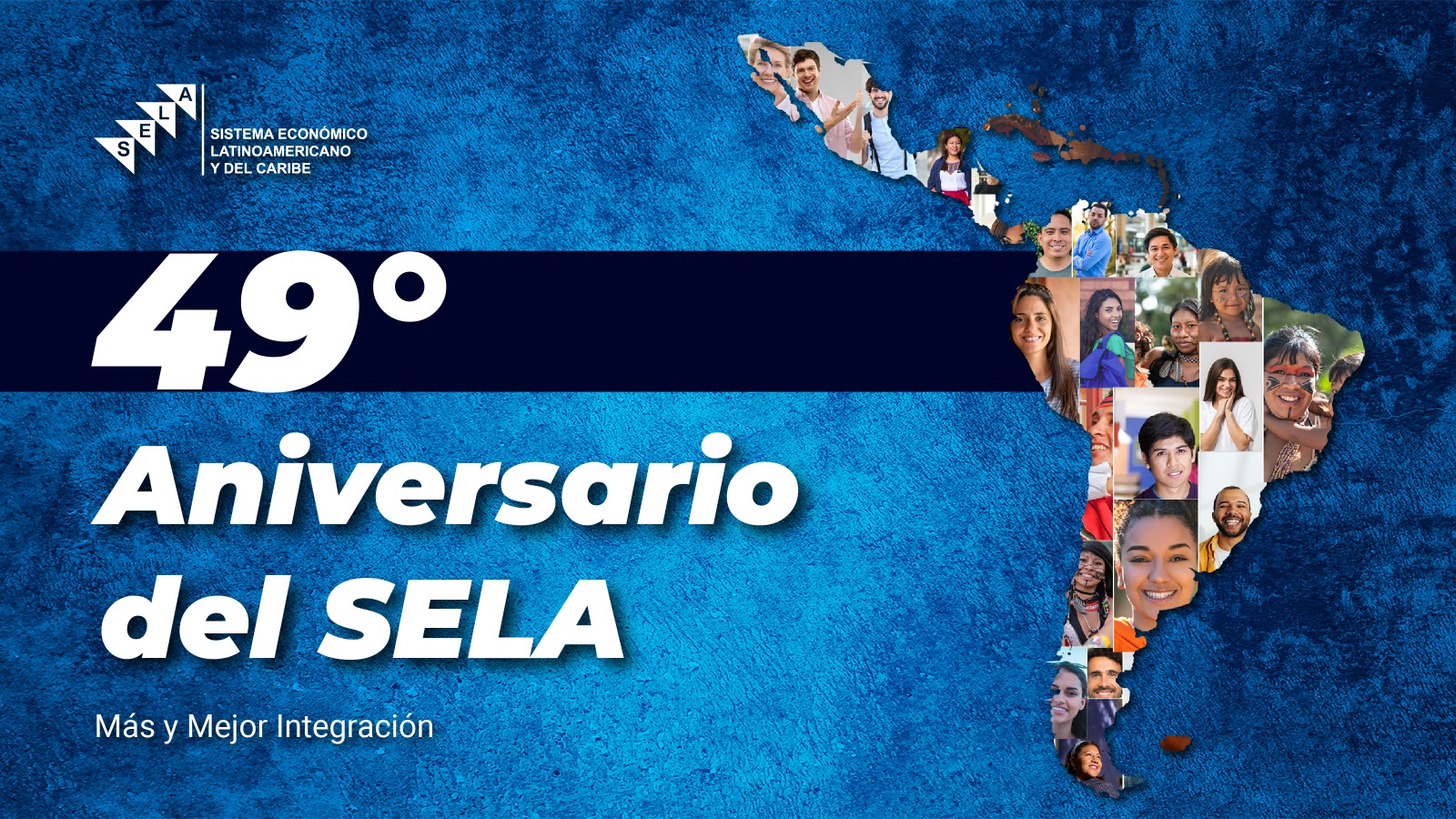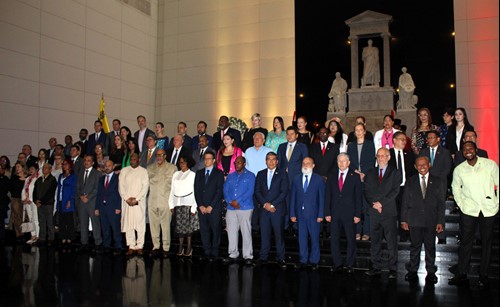
The Latin American and Caribbean Economic System (SELA) was established on 17 October 1975 with the purpose of strengthening intra-regional cooperation, as well as promoting a permanent system of consultation and coordination for the adoption of common positions and strategies on economic and social issues before international organisations, forums and groups of countries, as established in the Panama Convention establishing the organisation.
Throughout its 49 years, SELA has promoted cooperation in the region, becoming a benchmark for integration policies. In its Multi-Year Work Programme for 2022 – 2026, the organisation has managed to build a regional agenda for cooperation in three thematic areas: Economic Recovery, Digitalisation and Social Development.
During the last year, SELA has made significant progress in strengthening political, economic and cultural ties with China, through the First Latin American and Caribbean-China Development Forum, held in Beijing, with the participation of authorities of the region; as well as the presentation of the Second Edition of the SME Policy Index for Latin America and the Caribbean 2024 (IPPALC), a valuable analytical tool designed to optimise public action for the benefit of small and medium-sized enterprises.
SELA also presented the results of the implementation of the methodology of potential productive niches within the framework of the Project “Productive coordination in the Intra-ALBA area: Identification of potential productive niches and trade exchange,” technical assistance provided to the member countries of the Bolivarian Alliance for the Peoples of Our America – Peoples’ Trade Agreement (ALBA-TCP).
Likewise, spaces for dialogue and training have been generated on various topics of regional interest, such as: “Digital Governance and Cyberdiplomacy in Latin America and the Caribbean: Challenges and Opportunities,” an international event held in Paraguay, with an upcoming edition in Peru; the “First Diploma Course on Comprehensive Disaster Risk Management in Latin America and the Caribbean,” an activity that addressed reflections, challenges and proposals for innovation in regional public policies and their impact on public-private partnerships; and the “Diploma Course for the Public Management of MSME Programmes with a Gender Approach,” providing more than 90 public officials and decision-makers from the organisation’s Member States with tools for the formulation of public policies, as well as the transfer of innovation towards women’s entrepreneurship in the region.
It has also put forward proposals, such as the creation of the Permanent Coffee Forum for Latin America and the Caribbean, with the aim of contributing to regional coffee production and consolidating the region’s leading position in the international market. In addition, it maintains virtual spaces for the construction of knowledge in areas of common interest such as artificial intelligence, circular economy, cyber-diplomacy, digitalisation, migration and other focal topics to overcome the existing gaps in Latin America and the Caribbean.
SELA is a permanent regional consultation mechanism, currently comprising 25 States: Argentina, Bahamas, Barbados, Belize, Bolivia, Brazil, Colombia, Cuba, Chile, Dominican Republic, Ecuador, El Salvador, Guatemala, Guyana, Haiti, Honduras, Mexico, Nicaragua, Panama, Paraguay, Peru, Suriname, Trinidad and Tobago, Uruguay and Venezuela.

